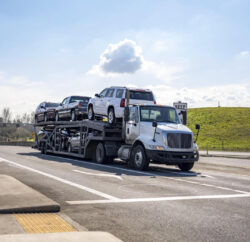French carmaker Renault made the headlines in November last year after the Emission Claim Foundation implicated the company in the diesel emissions scandal. The foundation also asked the drivers of around 300,000 affected vehicles in the Netherlands to join the lawsuit against the carmaker.
According to Emission Claim, Renault allegedly used defeat devices to manipulate emissions tests for several years. The affected vehicles released excessive volumes of nitrogen oxide (NOx), often 16 times over the legal limits. NOx is a dangerous gas that destroys the environment and threatens human lives.
If successful, the carmaker will pay to compensate each driver with an amount that’s equivalent to around 20% of the vehicle’s original purchase value.
Before the court appearance scheduled last December 8, 2022, the foundation talked to as many affected drivers as possible and convinced them to join the lawsuit. A GLO or Group Litigation Order is similar to the class-action lawsuit in the United States; several individual lawsuits are grouped and tried in court as a single case.
An American lawyer who has had significant experience in diesel emissions cases, particularly those involving the Volkswagen Group and Mercedes-Benz, is helping the foundation and the drivers by financing the lawsuit. He finances other diesel claims as well, including those of Stellantis (Opel, Citroën, and Peugeot parent company) and Mercedes.
Car claim foundation
Before the Emission Claim Foundation brought a case against Renault, the carmaker was involved in an emission claim lawsuit filed by the Car Claim Foundation. The non-profit organisation is the first group in the Netherlands that’s dedicated to protecting motorists’ interests, specifically those that involve carmakers’ fraudulent activities.
In 2021, the foundation filed a class-action lawsuit against Renault for using illegal emissions software in their diesel vehicles. Guido van Woerkom, the foundation’s chairman, accused the carmaker of lying to and misleading their customers as defeat devices hide real emissions during testing.
A defeat device can sense when a vehicle is about to be tested and once it does, lowers emissions to within legal levels. Thus, the vehicle is emissions-compliant, but this state only holds during testing. When the vehicle is brought out of the lab for real-world road driving, it goes back to emitting significant amounts of nitrogen oxides. In the case of Renault, NOx emissions were 16 times over the legal limits.
Renault knew about the excessive emissions but did not inform their customers. Instead, they marketed and sold the vehicles as high-performing and emissions-compliant cars. Drivers spent too much money purchasing defective, high-polluting vehicles.
The Car Claim Foundation’s lawsuit is expected to amount to around £863,250,000. Consumer association Consumentenbond is working alongside the foundation to ensure the success of the diesel claim.
In response, Renault firmly denied the accusations and said their diesel vehicles all follow emissions regulations. The carmaker also stressed that they have never fitted their vehicles with illegal defeat devices.
Renault’s case is similar to the Volkswagen Group’s Dieselgate scandal that first broke out in 2015.
The 2015 diesel emissions scandal
The US Environmental Protection Agency and the California Air Resources Board accused the VW Group of fitting Audi and Volkswagen diesel vehicles sold in the United States with defeat devices. They allegedly discovered that the vehicles’ emissions controls were manipulated so that emissions were significantly lower during testing but multiple times over the legal limits when on real-world roads.
Volkswagen had to recall thousands of affected vehicles and pay off fines and fees.
Authorities alleged that they also found out that other carmakers used the defeat device for their diesel vehicles, embroiling Mercedes-Benz, Vauxhall, Nissan, and BMW in the fiasco.
NOx emissions: the effects
NOx is highly reactive, so when it mixes with volatile organic compounds, it creates smog. When it combines with other compounds, including ammonium, it produces acid rain (through nitric acid). Nitrogen oxide also forms ground-level ozone, a pollutant that easily damages crops, plants, and other forms of vegetation.
If you are regularly exposed to nitrogen oxide emissions, you’ll experience numerous health impacts. Depression and anxiety can set in from time to time, and your cognitive health can weaken resulting in increased vulnerability to dementia.
The most dangerous health impacts, however, are the following:
- Asthma
- Respiratory diseases that can become COPD – chronic obstructive pulmonary disease
- Pulmonary oedema (your lungs are filled with liquid)
- Laryngospasm
- Cancer
- Asphyxiation
- Cardiovascular disease
- Premature death
If carmakers like Volkswagen and Renault continue to violate emissions regulations, more people will suffer the consequences of exposure to nitrogen oxides. They need to be stopped, to be held responsible for their illegal actions.
This is why authorities are urging affected drivers to file a diesel claim against their carmaker.
How should I begin my diesel claim?
Before starting your emission claim, you have to verify first if you are eligible to file one and receive compensation. You’ll have to determine if your vehicle is one of the affected models. Visit Emissions.co.uk to get all the information you need about your eligibility.
Once you’re done with the verification process, find an emissions expert who can help bring your diesel claim to the courts. You’ll have to decide if you want to join a GLO or file an individual case.




















